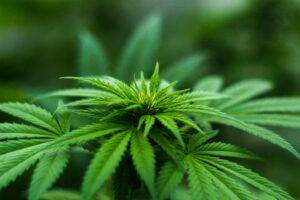
Marijuana seems to become on an unstoppable march to legalization in the United States. Massachusetts has recently joined the 11 states that already allow recreational use of cannabis. For many Americans, picking up and putting down marijuana is relatively easy. But that is not the case for everyone. For some, marijuana poses a substantial risk of addiction.
Dangerous misconception
The National Institute on Drug Abuse (NIDA) reported on studies that suggest 30 percent of those who use marijuana may have some degree of “marijuana use disorder,” aka addiction. The report mentioned that people who use marijuana before age 18 are four to seven times more likely to develop this use disorder than adults.
 Researchers estimated that 4 million people in the United States met the criteria for marijuana use sided in 2015. Of them, 138,000 voluntarily sought treatment. The researchers report the use disorder can morph into an addiction when the person can’t stop using the drug even when it interferes with their daily activities.
Researchers estimated that 4 million people in the United States met the criteria for marijuana use sided in 2015. Of them, 138,000 voluntarily sought treatment. The researchers report the use disorder can morph into an addiction when the person can’t stop using the drug even when it interferes with their daily activities.
Drug and Alcohol addiction Intervention Helpline for families lists signs that you might have if you are addicted to marijuana. Among the signals is a growing tolerance for the drug’s effects as well as using more marijuana than you initially intended to use.
The addiction issue is exacerbated by the fact that 29 states of the District of Columbia currently have laws legalizing marijuana in some form. In fact, nine states and the District of Columbia allow marijuana for recreational use.
In addition, in recent years there have been a number of studies that have extolled the virtues of marijuana. For instance, one stated that medical marijuana can help children with seizures and chemotherapy-induced nausea. Adult cancer patients are also using marijuana to ease nausea and other symptoms. People with epilepsy are also using marijuana to ease their seizures. There are also studies that indicate legalizing marijuana can reduce the misuse of opioids, alcohol, and other substances.
On the other hand, there are studies that have issued warnings on marijuana and heart health as well as using marijuana for morning sickness. Plus, pediatricians and other doctors have long said that marijuana can impair brain function in people under the age of 25.
There is also the issue of marijuana potency. The conflict of opinions and research has kept marijuana listed as a schedule I drug by the Drug Enforcement Administration (DEA). Drugs in this category are considered to have “no currently accepted medical use and a high potential for abuse.”
Who becomes addicted?
Despite the controversy around it, marijuana isn’t going away.
A 2013 study concluded that 6,600 people in the United States become marijuana users every day. The number might be higher now because of the states that have legalized cannabis in recent years.
In fact, even among seniors, marijuana use is rising.
Given all this, the big question is who gets addicted to marijuana and how does this drug misuse develop.
Building up a tolerance
Dependence on marijuana happens when users build up a tolerance for the substance and need more and more of it to experience the same effect. When a drug enters the brain it overrides the brain’s natural process, boosting a specific function far above, or below normal levels.
The brain may become resistant to the effects of the drug in an effort to protect itself, so that next time the person uses the drug, it doesn’t have as strong an effect. In order to feel the same high, the person has to take larger and larger doses.
 Over time, users may graduate from smoking marijuana to using it in high-dosage edible forms, or propane-extracted concentrates called dabs.
Over time, users may graduate from smoking marijuana to using it in high-dosage edible forms, or propane-extracted concentrates called dabs.
One study by National Center for Biotechnology Information (NCBI) found that people who use marijuana have fewer receptors in their brain for endogenous cannabinoids, the signaling molecules that marijuana’s active component, THC, mimics. THC also affects the brain’s reward system and the release of the “pleasure hormone” dopamine.
The problem isn’t that they are releasing less dopamine, but that the dopamine stimulation in the brain is having a very attenuated effect. The brain doesn’t know what to do with the dopamine. The dopamine signal is not being heard, not communicating properly downstream.
This decreased response to dopamine is likely caused by marijuana use. Another possibility is that marijuana users who become misusers have a dopamine system that’s naturally less responsive, making them more vulnerable to abusing the drug.
The patterns of activity in the brain shift from the drug activating reward centers to activating other, nearby regions related to the formation of habits. They start to recruit instead of other brain networks that are associated with habits and routines. This allows a transition from a behavior that is predominantly driven initially because it’s pleasurable and rewarding to one that’s automatic because it creates a habit or routine.
Dependence and withdrawal
Once tolerance sets in, dependence can form. If someone uses a drug often enough, the brain will become accustomed to it. In an attempt to return to baseline, it will compensate for the difference, raising a function that the drug lowered, like heart rate, or reducing a function that the drug boosted, like mood.
 This means that when the drug wears off, the person’s heart could start to race, they could become irritable or depressed, or experience any number of other reactions called withdrawal.
This means that when the drug wears off, the person’s heart could start to race, they could become irritable or depressed, or experience any number of other reactions called withdrawal.
For example, if a person is prescribed Vicodin for pain and uses it as directed, that does not make him or her dependent. If that person tries to cut down or stop his or her intake and have negative consequences — cravings, irritability, upset stomach, chills, etc. — that could be a sign that the user has become dependent. This can happen to people who take prescription medication for a long time, even if they are taking it as directed by their doctor.
So a drug can cause dependence but not abuse, as is the case for some people prescribed opiate painkillers. Or a drug can cause no withdrawal at all, as in the case of cocaine, but still, be quite risky for abuse.
The cycle of addiction

Unlike opiate misuse, which can set in fairly quickly with heavy use, marijuana misuse can take months or even years to develop. A user might not immediately realize that they’ve crossed the line into addiction.